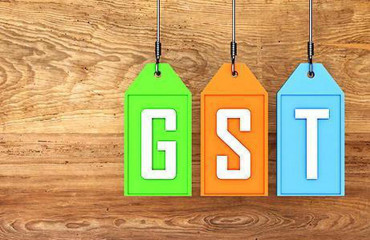
Introduction: The recent response by the Minister of Finance sheds light on the GST rates for stationery items, primarily used by students, and the taxation on online education services. This article aims to dissect the reasons behind the GST rates and whether there are considerations for revisions.
Introduction: The recent response by the Minister of Finance sheds light on the GST rates for stationery items, primarily used by students, and the taxation on online education services. This article aims to dissect the reasons behind the GST rates and whether there are considerations for revisions.
Detailed Analysis:
1. GST Rates on Stationery:
- Stationery items commonly used by students, including slate pencils, erasers, pencils, pencil sharpeners, mathematical boxes, and exercise books, attract concessional GST rates ranging from NIL to 12%. However, ballpoint pens fall under the 18% GST category.
2. Reasons for GST Rates on Stationery:
- The rationale behind differential rates is based on categorization and usage. Essential items like slate pencils and erasers have NIL to 5% GST, while non-essential items like ballpoint pens attract a higher GST of 18%.
3. GST on Online Education:
- Online education services provided by educational institutions, covering pre-school to higher secondary education, vocational courses, and recognized qualifications, are exempt from GST. This exemption supports the government's goal of democratizing the Indian education system.
4. Reasons for GST Exemption on Online Education:
- The exemption reflects the government's recognition of the transformative role of online education and its commitment to making education accessible. It aims to encourage digital learning without additional financial burden.
5. Government's Stance on GST Revision:
- The government, in response to a query about reducing GST on both stationery items and online education, has stated that there is no current proposal for such changes.
- The GST rates and exemptions are determined by the GST Council, a constitutional body with representatives from Union and State Governments. Any revisions would follow their recommendations.
6. GST Rates Summary (Annexure):
- The article includes an annexure detailing specific stationery items and their corresponding GST rates, ranging from NIL to 18%. This provides a comprehensive overview of the tax implications on various products.
Conclusion: Understanding GST rates on stationery items and online education is crucial for students, educational institutions, and businesses. The government's approach to differential rates on stationery reflects an attempt to balance revenue generation and affordability for students. Meanwhile, the exemption of GST on online education aligns with the larger vision of inclusive and accessible education. While there are no immediate plans for GST revisions, staying informed about these rates remains vital for stakeholders in the education sector.
GOVERNMENT OF INDIA
MINISTRY OF FINANCE
DEPARTMENT OF REVENUE
RAJYA SABHA
UNSTARRED QUESTION NO-1043
ANSWERED ON – 12.12.2023
GST RATES FOR STATIONERY ITEMS AND ONLINE EDUCATION
1043. SHRI ABDUL WAHAB:
Will the Minister of Finance be pleased to state:
(a) whether it is a fact that stationery items that is mostly used by school and college going students are kept under higher GST slabs;
(b) if so, the reason and rational for keeping these items under higher GST;
(c) whether it is also a fact that, GST for taking online education that has largely democratised Indian education system, is under 18 per cent slab;
(d) if so, the reason and rational for keeping such higher GST on online education; and
(e) whether Government will consider bringing down the GST for both stationery items and online education in the interest of our aspiring students?
ANSWER
THE MINISTER OF STATE IN THE MINISTRY OF FINANCE
(SHRI PANKAJ CHAUDHARY)
(a) & (b): GST on stationery items commonly used by school and college going students attract concessional rates ranging from NIL to 12%, except pens which attract 18% GST. The GST rates on such items are mentioned in the Annexure.
(c) & (d): Services, including online education, provided by an educational institution, i.e. an institution providing services by way of, – (i) pre-school education and education up to higher secondary school or equivalent; (ii) education as a part of a curriculum for obtaining a qualification recognized by any law for the time being in force; (iii) education as a part of an approved vocational education course provided to its students, faculty and staff are exempt from GST.
(e): There is no such proposal. The GST rates and exemptions are notified on the recommendations of GST Council, which is a constitutional body comprising members from Union and State Governments.
Annexure
